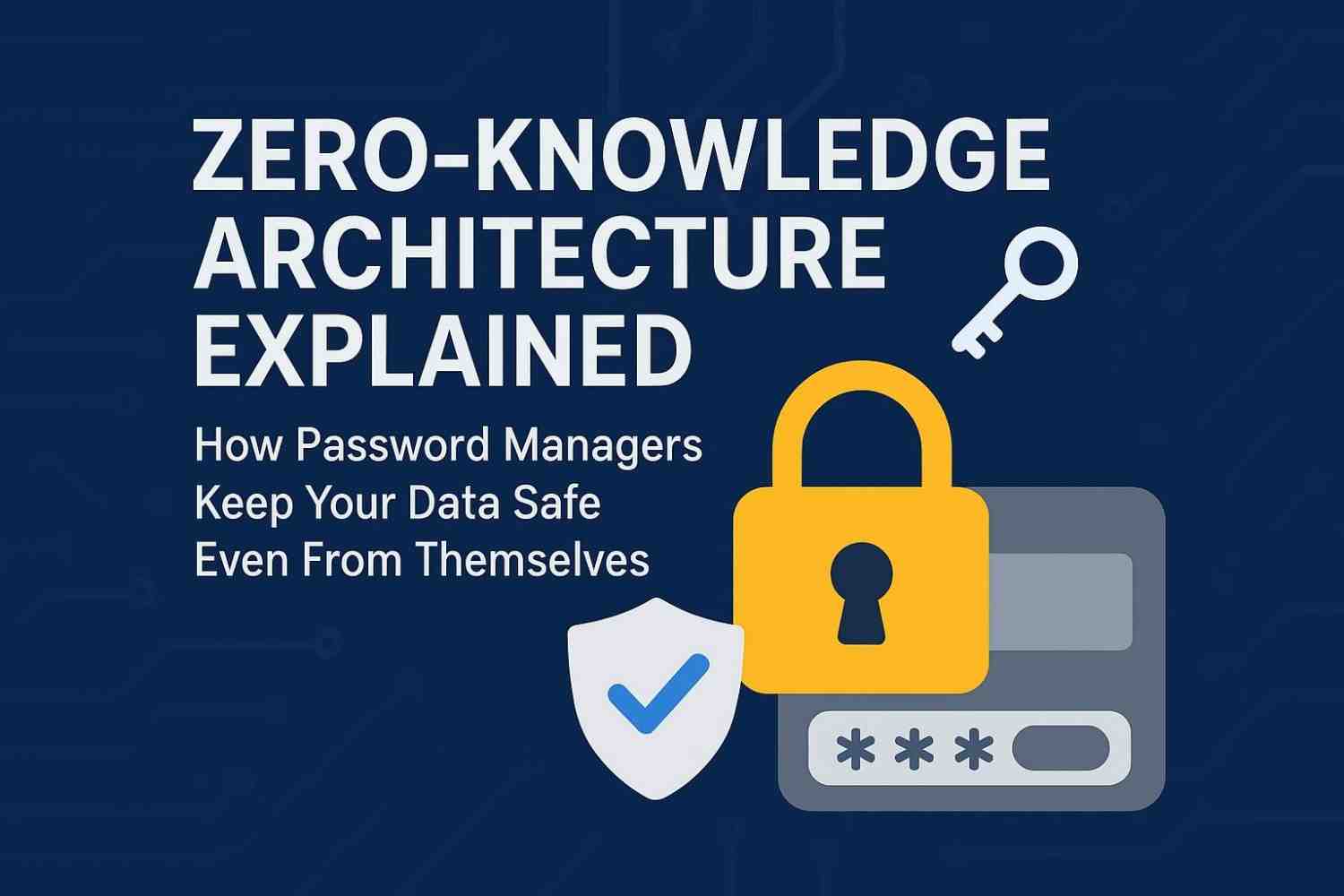


Zero-Knowledge keeps your passwords private, even from the manager, protecting against breaches and unauthorized access.
In today’s digital-first world, our personal and professional lives are locked behind countless passwords. From online banking and cloud storage to workplace apps and social media accounts, each service requires strong authentication. But with the growing risk of cyberattacks, one question continues to trouble people: How can I trust a password manager with all my sensitive data?
This is where Zero-Knowledge Architecture comes into play. It’s a security model that ensures even the password manager provider itself cannot access your data. In this article, we’ll break down what zero-knowledge means, how it works, and why it’s becoming the gold standard for password protection in 2025 and beyond.
Zero-Knowledge Architecture (also called Zero-Knowledge Encryption) is a security principle where the service provider has no knowledge of your encryption keys or stored data. Simply put, your information is encrypted and decrypted only on your device, not on the company’s servers.
This means:
The idea is simple but powerful: You own the keys, not the provider.
At the heart of zero-knowledge architecture is cryptography. Let’s break down the process in plain terms:
Without zero-knowledge architecture, password managers would technically be able to access your credentials. This creates trust issues and makes them an attractive target for hackers. Zero-knowledge solves this by flipping the model:
Imagine this scenario: A popular cloud storage service gets hacked. If the provider has access to encryption keys, attackers may steal both the data and the keys, leaving users exposed.
Now, compare that to a zero-knowledge password manager. Even if the servers are hacked, all the attacker sees is random, encrypted gibberish. Without your master password—which only you know—the data is useless.
This fundamental difference is why businesses, cybersecurity experts, and everyday users are increasingly demanding zero-knowledge solutions.
Like any advanced technology, zero-knowledge encryption is surrounded by myths. Let’s clear up the most common ones:
Although often associated with password managers, zero-knowledge is part of a broader trend in digital security. It’s also used in:
This shows that zero-knowledge isn’t a niche concept—it’s shaping the future of digital trust.
While powerful, zero-knowledge design comes with its own set of challenges:
Despite these challenges, the benefits outweigh the risks—especially in today’s environment of escalating cyber threats.
Even with zero-knowledge protections, your security ultimately depends on how you use the tool. Follow these practices to maximize safety:
With data breaches making headlines almost daily, the question is no longer if a provider will be attacked but when. In this reality, zero-knowledge architecture is not a luxury—it’s a necessity.
By ensuring that even service providers cannot access user data, zero-knowledge builds digital systems that are more private, resilient, and trustworthy. Whether you’re an individual managing personal accounts or a business safeguarding corporate secrets, zero-knowledge is the strongest guarantee that your data remains yours alone.
Zero-knowledge architecture represents a fundamental shift in the way we think about digital trust. Instead of requiring blind faith in providers, it empowers users to stay in control of their most sensitive information.
Password managers that embrace this model are more than just convenient—they’re a shield against insider threats, server breaches, and mass surveillance.
As we move deeper into 2025, where cyber risks are growing in both scale and sophistication, choosing a zero-knowledge password manager isn’t just a smart decision—it’s the only way to ensure your digital life is truly private and secure.
